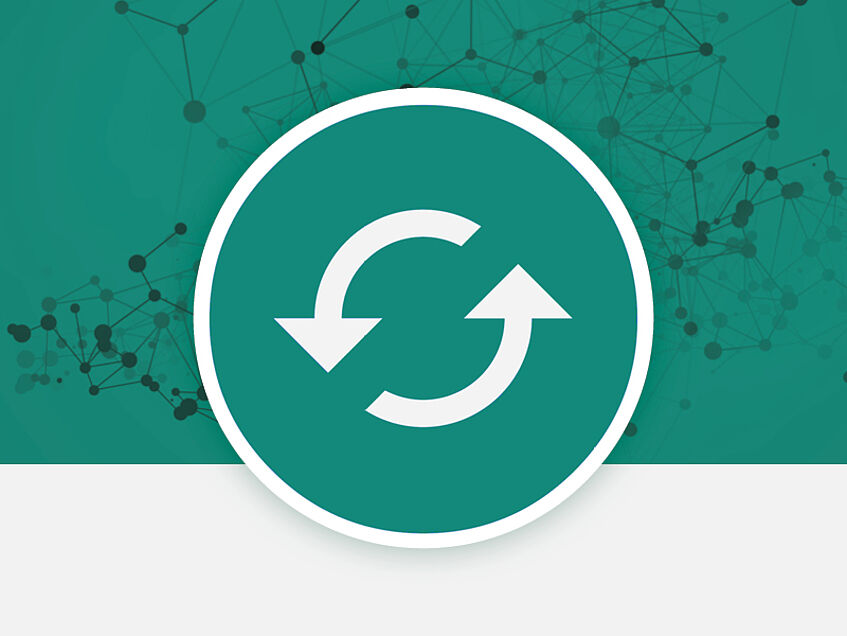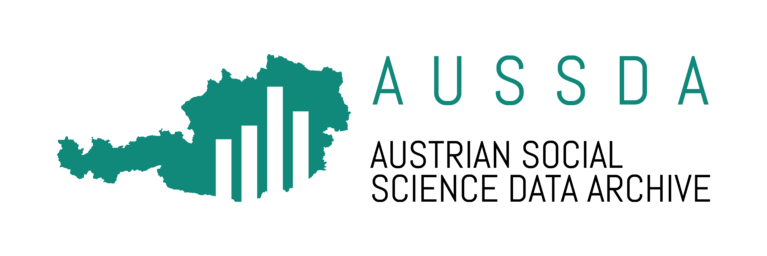Archiving with us - Three easy steps
AUSSDA ensures free, secure storage of your data. Our goal is to make data and documentation findable, accessible, interoperable, and reusable. We follow international standards. Our archive is the AUSSDA Dataverse. The AUSSDA archive is organized into different "dataverses". A dataverse is a collection of data sets around a special topic or source. AUSSDA's primary collection is the public dataverse. If you are interested in establishing your own dataverse or would like to publish your data with AUSSDA please contact us.
Step 1: Contact

You are a social scientist and want to archive your data? Our data specialists help you with the preparations for adding your data to our Dataverse, contact info@aussda.at. or call us +43-1-4277-15323.
Step 2: Prepare

Send us your dataset, a description of its contents and methods, as well as any relevant supplementary materials (such as statistical scripts). You can find comprehensive information in our Data Deposit Guideline and in our Data Deposit Guideline for Qualitative Data. Unsure about what exactly this entails? Call us and we will help you!
Step 3: Share

Working collaboratively we will help you to identify the optimal archiving and licensing solution for your data. Our staff will perform additional metadata quality audits to ensure that others can find, access, and cite your work.
How to make your data FAIR
How to make your data FAIR
If you want to know how to ideally prepare your research data for archiving and publication, check the CESSDA Data Management Expert Guide. This guide is designed by European experts to help social science researchers make their research data Findable, Accessible, Interoperable and Reusable (FAIR).
Self Deposit
You want to archive your data independently? You have a large amount of data sets or want to publish data quickly? Find out more about our Self-Deposit Service here!
Self-Deposit in the AUSSDA Dataverse...
- enables you to make a DOI reservation within minutes,
- allows you to rapidly self-deposit and publish research data and documentation,
- increases the chances for receiving visibility, academic credit and increased citation counts,
- allows you to adhere to the FAIR principles and make your data part of the European Open Science Cloud,
- enables users to access your research data under licences for scientific use.
Who can become an accredited Self-Depositor? You...
- are affiliated to one of our partner universities (University of Vienna, University of Graz, University of Linz),
- have quantitative data from the social sciences,
- have experience in empirical research and social science research data management,
- have completed basic data protection training.
If the criteria apply to you, contact us. Then you can...
- sign the Self-Deposit Agreement with AUSSDA,
- prepare your data and documentation (pseudonymise your data and check file formats and names, guided by the Self-Deposit Manual),
- get the AUSSDA training session on Pseudonymisation and Dataverse,
- upload and publish your datasets to Dataverse, guided by the Self-Deposit Manual.
Benefits from our archive...
- Broaden awareness of your research
- Increase your citation rates
- Enjoy hassle-free, secure storage
- Receive free audits checking understandability of your data
- Save time on answering data requests (we'll do it for you!)
- No more duplicating data collection efforts
- Develop new partnerships and collaborations
...for our research communities
- Political science
- Sociology
- Media and communications
- Economics and business
- Educational sciences
- Jurisprudence
- Psychology
- Social and economic geography
- Public health
- Demography
- Contemporary and social history
- Other social sciences or interdisciplinary studies
FAQ
For more information on how to (self-)deposit data, please see our FAQ.

